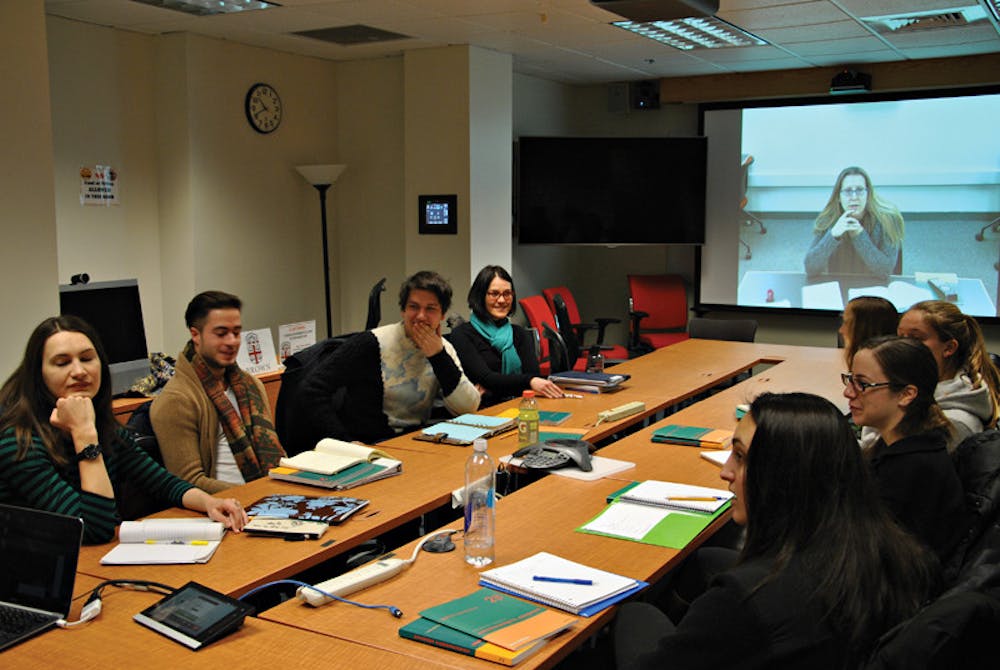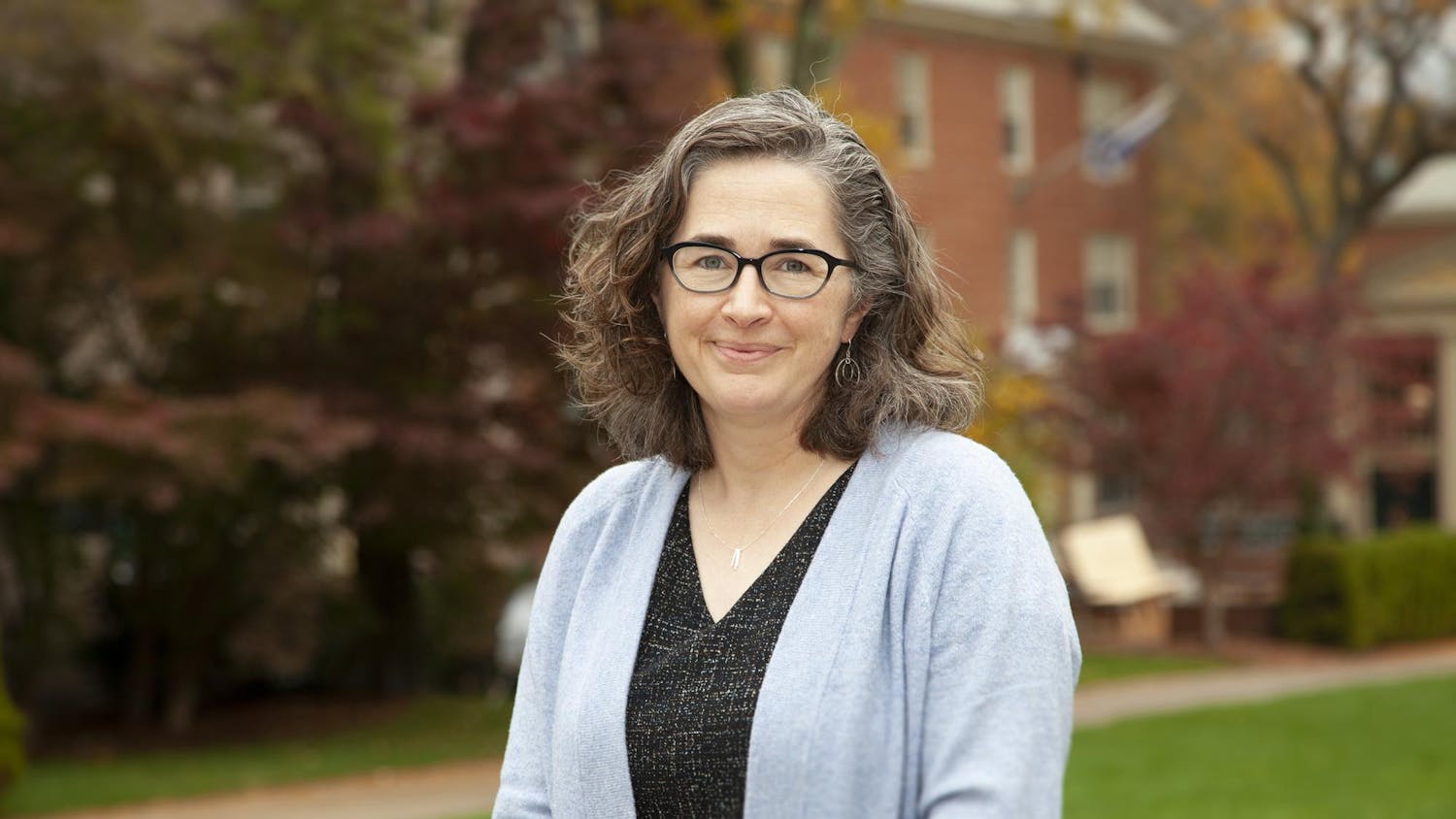Eight students are currently enrolled in MGRK 0400: “Intermediate Modern Greek,” taught by Senior Lecturer in Modern Greek Studies Elissavet Amanatidou, but only seven of them live on College Hill. The eighth student is a graduate student at Cornell, Eilis Monahan, who joins the class by video conference as part of a pilot program launched last fall by the Center for Language Studies.
Monahan does archaeological work in Cyprus, making knowledge of modern Greek imperative to her practice, she said. But when Cornell — along with several other peer institutions — ended its modern Greek program in 2011, Monahan was left searching for other options.
She began to communicate with Amanatidou, who also serves as director of the CLS. Amanatidou said she saw an opportunity for both Brown and Cornell to benefit from course-sharing. Video conferencing is a more engaging, realistic alternative to independent study, in which students often use software similar to Rosetta Stone and must review almost exclusively on their own, she said. “To develop sociolinguistic knowledge of a language,” students need to step away from computers, she said.
Course-sharing exposes Monahan to what Amanatidou described as a “community of learners.”
Monahan attends Greek class at Brown over video conference using PolyCom HDX Telepresence System software. The rest of the students in the course see Monahan on a projector, and Monahan can use the software to control the camera, so she can zoom in on any particular part of the board, Monahan said.
Last semester, there were few technical difficulties and most were quickly resolved by a University staff member, said Michel Comitis ’16.
Despite occasional delays or sound outages, Alexandra Scott ’16 said the technology has never been distracting.
Last semester’s technical problems seem to have been resolved, and the software has seen no significant malfunctions this semester, Monahan said.
Amanatidou said she emails Monahan all course materials before class and returns completed work with her comments. To take quizzes or exams, Amanatidou sends materials to the Cornell Language Resource Center, where they are kept secure, Monahan said. Monahan receives these exam materials at the same time her classmates on campus do, Amanatidou said.
Monahan said the video conferencing has led her to “exert extra effort to stay engaged in the class,” and overcoming the technological barrier has impelled additional focus during class time.
Given her distance from her classmates, Monahan has sought out Cornell students with whom to practice speaking modern Greek, she said. But lacking “an immediate support network” has often forced her to study course materials individually.
Other students in the class said they find the video conferencing to be a fairly neutral factor in their learning experience, though Comitis said it has made course materials such as videos, texts and audio files “more accessible” to all students because they all have to be available online.
Students in the class are mixed on whether they would video conference into a course at another university. Ashley Frith ’15 said she would consider it but questioned whether the format would be feasible in all courses, citing the lab component of science courses.
But classmate Scott said she would need to be in the classroom to feel “fully engaged.”
Cornell, Yale and Columbia have formed a formal consortium that course-share less commonly taught language courses among one another. Amanatidou said she hopes Brown students will have the option of taking seldom-taught language courses at other institutions in the future.

ADVERTISEMENT




